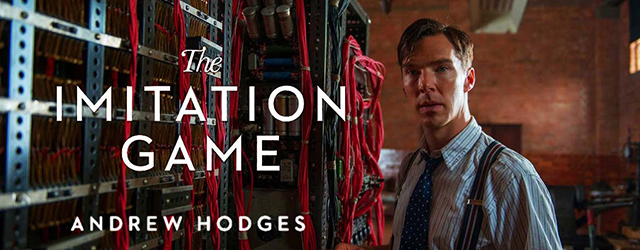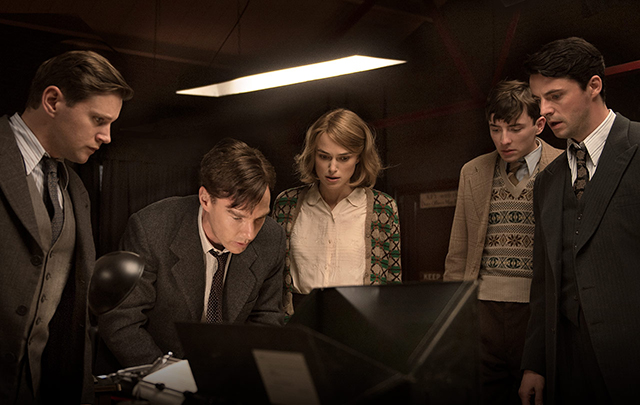Alan Turing, a British mathematician, father of the modern computer, and the man who was perhaps most responsible for ending WWII, became a rather tragic figure post-war when he was convicted of “gross indecency” with another man and subsequently chemically castrated by the British government. He was convicted because he was gay, despite his enormous contributions to the war effort which ultimately helped secure victory for the Allies.
Turing, however, wasn’t the only gay man who was forced to undergo so-called “organo-therapy”. Being gay in Britain used to be, some thought, a sentence worse than death—many, many men chose to hide their sexuality, and many more married women in order to distance themselves from that damning label: homosexual.
The Imitation Game is the extraordinary story of Alan Turing and how he came to create the Enigma machine, and also how he stood against unimaginable odds in a time when being gay was punished in one of the worst ways possible. In 1952 his ‘therapy’ started, and two years later, driven to despair by the nation he’d done so much to save, he was said to have killed himself with cyanide at age 41. Unfortunately, the circumstances surrounding his death were murky at best, and even though murder and accidental death were also possible, suicide—due to what he had mentally and physically suffered—was ruled the most likely option.
On Christmas eve 2013, Queen Elizabeth II signed a pardon for Turing’s conviction, with immediate effect. The Queen officially pronounced Turing pardoned in August 2014 – only the fourth royal pardon granted since the end of WWII. Still, the events surrounding Turing post-war have left an indelible stain on the British government, and on British history.
Turing deserves to be remembered and recognized for his outstanding contribution to the war effort, and for his part in the beginning stages of what we know to be the modern computer; not for his later criminal conviction. The Imitation Game does a splendid job of capturing the man behind the Enigma, and tastefully covers a dark period in history for the LGBT community.



